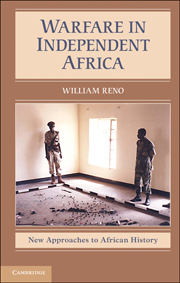6 - Parochial Rebels
Published online by Cambridge University Press: 05 June 2012
Summary
The Oodua People's Congress (OPC) in southwestern Nigeria would seem to have been a good candidate to become a reform or a separatist rebel group. From about the mid-1990s, it had substantial grassroots support within the Yoruba ethnic community. It supported vigilante groups to protect this community against a terrible crime wave in which many people suspected police complicity. It worked alongside organizations that advanced political programs such as the Oodua Liberation Movement, the Oodua Youth Movement (OYM), and the Yoruba Revolutionary Movement. “Our primary objective,” said OPC National Secretary Kayode “Sankara” Ogundamisi, “was to canvas a sovereign national conference that will lead us to an autonomous Yoruba nation,” whereas the OYM called for an “Oodu'a Republic.” OPC organizers used alliances with cultural associations to promote the popular political narrative of self-determination and opposition to the corrupt state. OPC's capacity to control and administer neighborhoods and to fight the police suggested that it occupied new fields of leverage in congested urban areas to challenge the state and to chart a new political future.
A closer look at the OPC's activities revealed numerous links to incumbent politicians and showed how the OPC acted more as a tool of politicians' ambitions rather than as a new force in politics. This tendency became more pronounced with Nigeria's return to electoral politics in 1999, one year after the death of the dictator Sani Abacha. In December 2001, for example, Nigeria's Attorney General Bola Ige was shot in an unsolved murder.
- Type
- Chapter
- Information
- Warfare in Independent Africa , pp. 206 - 241Publisher: Cambridge University PressPrint publication year: 2011

